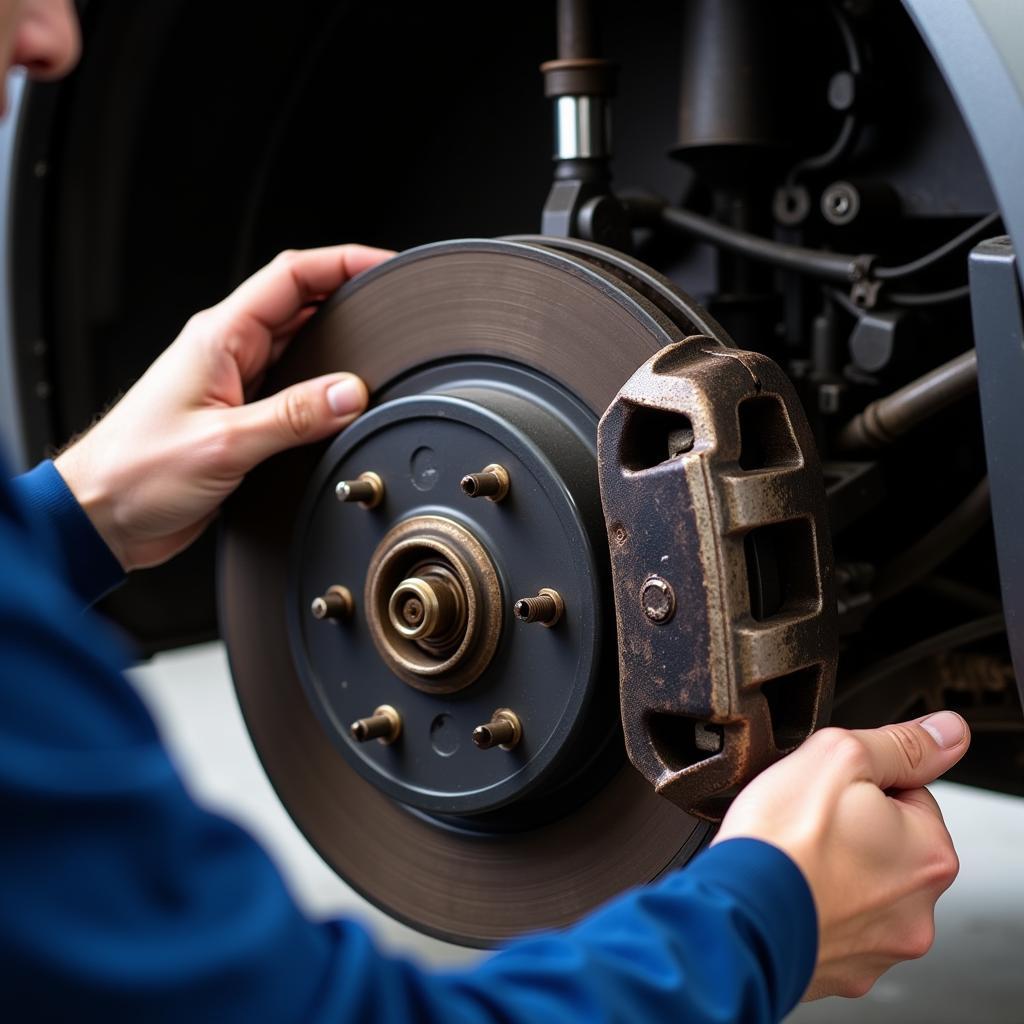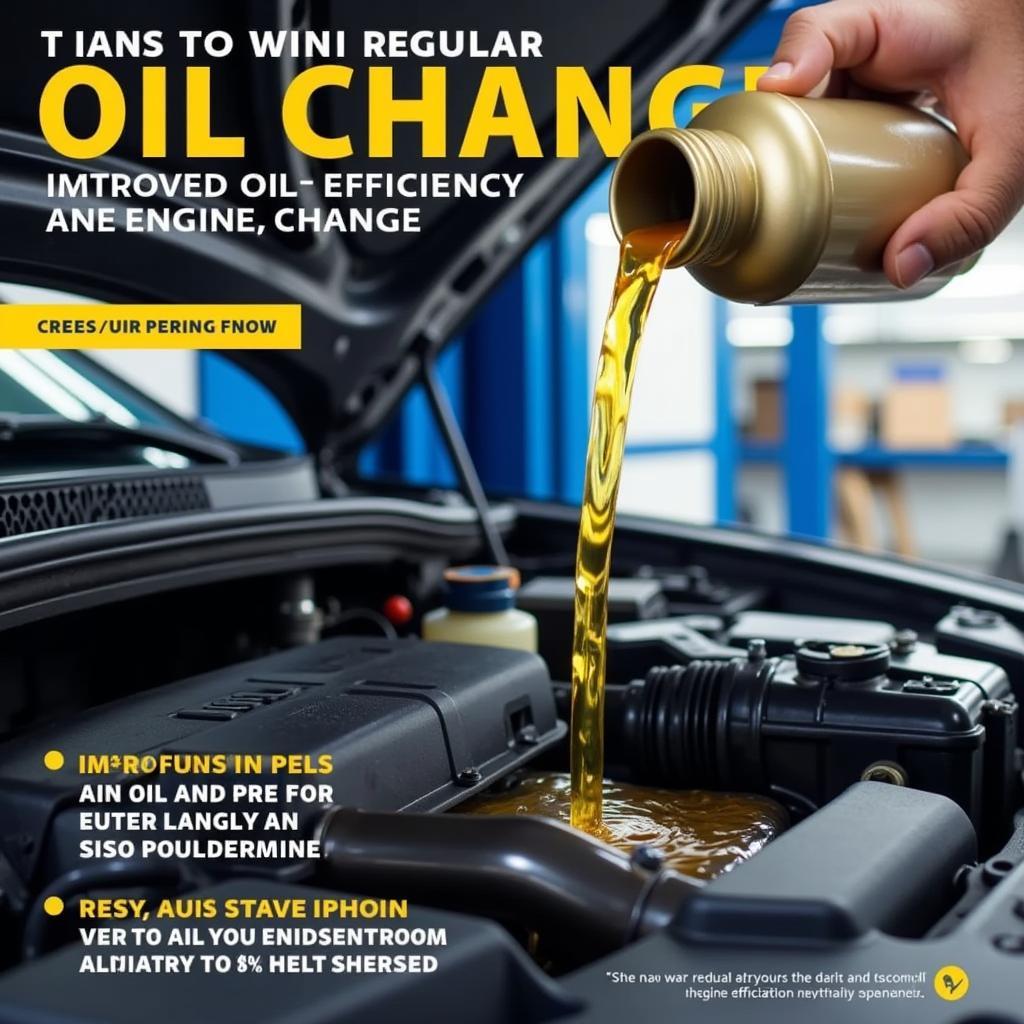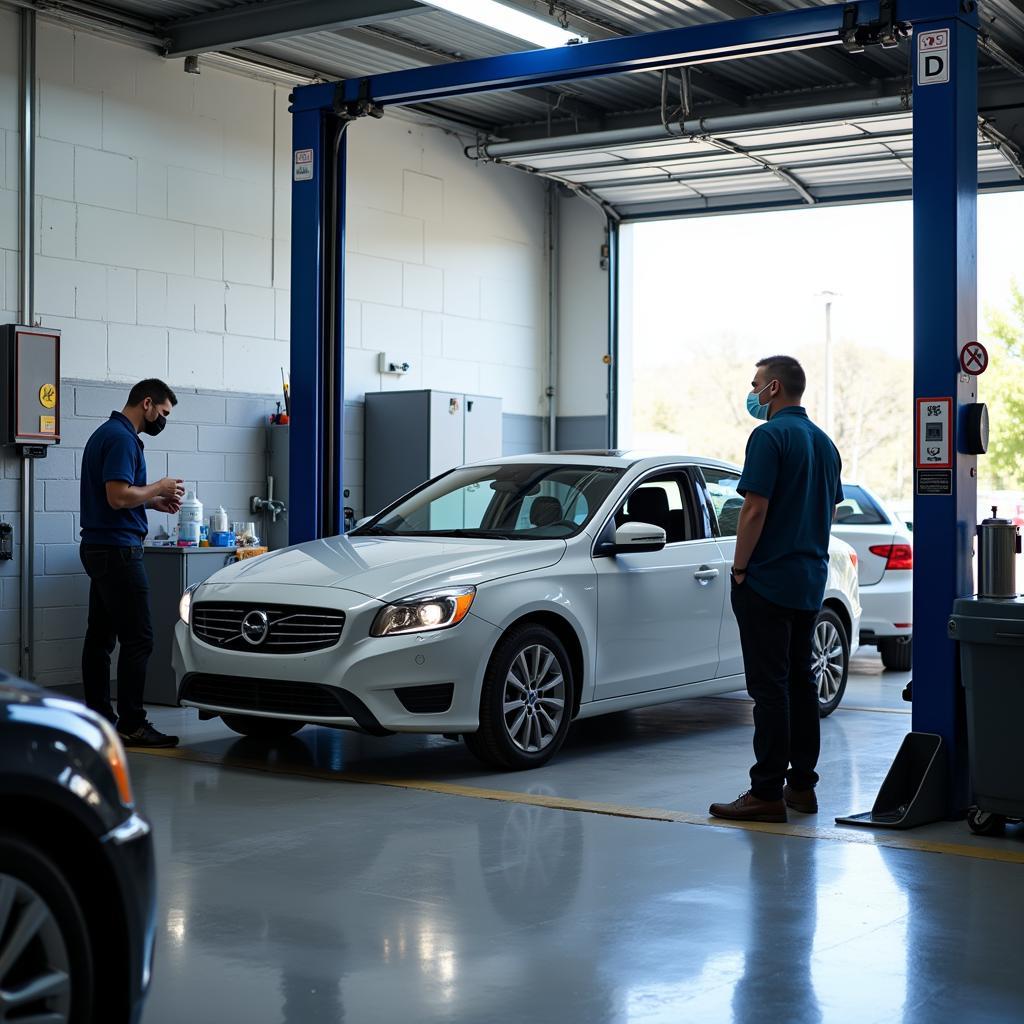Benefits of a Car Service: Why Regular Maintenance Matters
A well-maintained car is a safe, reliable, and efficient machine. While it can be tempting to skip a car service or two to save money in the short term, the long-term benefits of regular maintenance far outweigh any perceived savings. Let’s delve into why prioritizing car services is essential for every car owner.
Enhanced Safety on the Road
Your car’s safety features are paramount, and regular servicing ensures they operate at peak performance.
- Brake System: Worn brake pads, low brake fluid, or damaged rotors can drastically reduce your car’s stopping power, putting you and others at risk.
- Tires: Regular tire rotations and pressure checks ensure even wear and tear, maximizing grip and handling.
- Lights: Properly functioning headlights, taillights, and turn signals are crucial for visibility and communication on the road, especially at night or in adverse weather conditions.
 Car Brake System Inspection
Car Brake System Inspection
By addressing these crucial safety elements, car services contribute to accident prevention and provide peace of mind on every journey.
Improved Fuel Efficiency and Performance
Regular car services can significantly impact your vehicle’s fuel economy and overall performance.
- Oil Changes: Fresh oil lubricates engine components, reducing friction and maximizing engine efficiency. This translates to better gas mileage and lower fuel costs.
- Air Filter Replacement: A clean air filter ensures optimal airflow to the engine, leading to efficient combustion and improved fuel economy.
- Spark Plug Maintenance: Worn spark plugs can cause misfires and engine hesitation, reducing performance and fuel efficiency.
 Car Engine Oil Change
Car Engine Oil Change
By addressing these areas, car services help your vehicle operate at its best, saving you money at the pump and ensuring a smooth and powerful driving experience.
Preventing Costly Repairs Down the Road
One of the most significant Benefits Of A Car Service is its preventative nature.
- Early Detection: Mechanics can identify minor issues before they escalate into major problems. This proactive approach can save you from expensive repairs and potential breakdowns.
- Fluid Checks: Regularly checking and topping off essential fluids like coolant, transmission fluid, and power steering fluid prevents damage to vital components and ensures their longevity.
- Belt and Hose Inspections: Worn belts and hoses can snap unexpectedly, leading to engine damage or other complications. Regular inspections catch these issues early, preventing costly repairs.
By addressing minor issues promptly, car services prevent them from snowballing into major expenses, saving you time, money, and potential headaches in the long run.
Extending the Lifespan of Your Vehicle
Regular car services are an investment in the longevity of your vehicle.
- Reduced Wear and Tear: Maintaining proper fluid levels, clean filters, and lubricated components significantly reduces wear and tear on your car’s systems, prolonging their lifespan.
- Corrosion Prevention: Many car services include inspections for rust and corrosion, allowing for early treatment and preventing structural damage.
- Maintaining Resale Value: A well-maintained car with a detailed service history holds a higher resale value, benefitting you when it’s time to sell or trade-in your vehicle.
 Car Service Checklist
Car Service Checklist
Benefits of a Car Service: The Bottom Line
Investing in regular car services offers numerous benefits, from enhancing safety and performance to saving you money and extending your vehicle’s lifespan. By adhering to your manufacturer’s recommended service schedule and choosing a reputable mechanic, you can enjoy a reliable, efficient, and safe driving experience for years to come.
Frequently Asked Questions about Car Services
1. How often should I service my car?
It’s best to follow the service schedule outlined in your car’s owner’s manual. However, a general guideline is every 3,000 miles or six months for an oil change and a more comprehensive service every 15,000 to 30,000 miles.
2. What are the signs my car needs a service?
Common signs include unusual noises, warning lights on your dashboard, fluid leaks, difficulty starting, vibrations, or a decrease in fuel efficiency.
3. What should a basic car service include?
A basic car service typically includes an oil change, filter replacements (oil, air, and cabin), fluid top-offs, tire pressure checks, and a visual inspection of belts, hoses, and other vital components.
4. How do I choose a reputable car service provider?
Look for certified mechanics, ask for recommendations from friends and family, read online reviews, and compare prices before making a decision.
5. Can I perform some car maintenance tasks myself?
While some tasks like checking fluid levels and changing air filters can be done at home, it’s best to leave more complex procedures to qualified mechanics.
Need assistance with car servicing or looking for a reliable service provider? Contact us via WhatsApp at +1(641)206-8880 or email us at [email protected]. Our dedicated customer support team is available 24/7 to assist you.
Explore more car care tips and advice in our beauty car service article.

